- Home
- Gillian Flynn
Gone Girl Page 7
Gone Girl Read online
Page 7
‘Happy anniversary, my asshole husband who neglected me on my big day.’
We sit silent for a minute, my stomach knotting. I don’t want to be the bad guy here. I don’t deserve that. Nick stands up.
‘Well, how was it?’ I ask dully.
‘How was it? It was fucking awful. Sixteen of my friends now have no jobs. It was miserable. I’ll probably be gone too, another few months.’
Friends. He doesn’t even like half the guys he was out with, but I say nothing.
‘I know it feels dire right now, Nick. But—’
‘It’s not dire for you, Amy. Not for you, it never will be dire. But for the rest of us? It’s very different.’
The same old. Nick resents that I’ve never had to worry about money and I never will. He thinks that makes me softer than everyone else, and I wouldn’t disagree with him. But I do work. I clock in and clock back out. Some of my girlfriends have literally never had a job; they discuss people with jobs in the pitying tones you talk about a fat girl with ‘such a nice face.’ They will lean forward and say, ‘But of course, Ellen has to work,’ like something out of a Noël Coward play. They don’t count me, because I can always quit my job if I want to. I could build my days around charity committees and home decoration and gardening and volunteering, and I don’t think there’s anything wrong with building a life around those things. Most beautiful, good things are done by women people scorn. But I work.
‘Nick, I’m on your side here. We’ll be okay no matter what. My money is your money.’
‘Not according to the prenup.’
He is drunk. He only mentions the prenup when he’s drunk. Then all the resentment comes back. I’ve told him hundreds, literally hundreds of times, I’ve said the words: The prenup is pure business. It’s not for me, it’s not even for my parents, it’s for my parents’ lawyers. It says nothing about us, not you and me.
He walks over toward the kitchen, tosses his wallet and wilted dollars on the coffee table, crumples a piece of notepaper and tosses it in the trash with a series of credit-card receipts.
‘That’s a shitty thing to say, Nick.’
‘It’s a shitty way to feel, Amy.’
He walks to our bar – in the careful, swamp-wading gait of a drunk – and actually pours himself another drink.
‘You’re going to make yourself sick,’ I say.
He raises his glass in an up-yours cheers to me. ‘You just don’t get it, Amy. You just can’t. I’ve worked since I was fourteen years old. I didn’t get to go to fucking tennis camp and creative-writing camp and SAT prep and all that shit that apparently everyone else in New York City did, because I was wiping down tables at the mall and I was mowing lawns and I was driving to Hannibal and fucking dressing like Huck Finn for the tourists and I was cleaning the funnel-cake skillets at midnight.’
I feel an urge to laugh, actually to guffaw. A big belly laugh that would sweep up Nick, and soon we’d both be laughing and this would be over. This litany of crummy jobs. Being married to Nick always reminds me: People have to do awful things for money. Ever since I’ve been married to Nick, I always wave to people dressed as food.
‘I’ve had to work so much harder than anyone else at the magazine to even get to the magazine. Twenty years, basically, I’ve been working to get where I am, and now it’s all going to be gone, and there’s not a fucking thing I know how to do instead, unless I want to go back home, be a river rat again.’
‘You’re probably too old to play Huck Finn,’ I say.
‘Fuck you, Amy.’
And then he goes to the bedroom. He’s never said that to me before, but it came out of his mouth so smoothly that I assume – and this never crossed my mind – I assume he’s thought it. Many times. I never thought I’d be the kind of woman who’d be told to fuck herself by her husband. And we’ve sworn never to go to bed angry. Compromise, communicate, and never go to bed angry – the three pieces of advice gifted and regifted to all newlyweds. But lately it seems I am the only one who compromises; our communications don’t solve anything; and Nick is very good at going to bed angry. He can turn off his emotions like a spout. He is already snoring.
And then I can’t help myself, even though it’s none of my business, even though Nick would be furious if he knew: I cross over to the trash can and pull out the receipts, so I can picture where he’s been all night. Two bars, two strip clubs. And I can see him in each one, talking about me with his friends, because he must have already talked about me for all that petty, smeared meanness to come out so easily. I picture them at one of the pricier strip clubs, the posh ones that make men believe they are still designed to rule, that women are meant to serve them, the deliberately bad acoustics and thwumping music so no one has to talk, a stretch-titted woman straddling my husband (who swears it’s all in fun), her hair trailing down her back, her lips wet with gloss, but I’m not supposed to be threatened, no it’s just boyish hijinks, I am supposed to laugh about it, I am supposed to be a good sport.
Then I unroll the crumpled piece of notebook paper and see a girl’s handwriting – Hannah – and a phone number. I wish it were like the movies, the name something silly, CanDee or Bambie, something you could roll your eyes at. Misti with two hearts over the I’s. But it’s Hannah, which is a real woman, presumably like me. Nick has never cheated on me, he has sworn it, but I also know he has ample opportunity. I could ask him about Hannah, and he’d say, I have no idea why she gave me her number, but I didn’t want to be rude, so I took it. Which may be true. Or not. He could cheat on me and he would never tell me, and he would think less and less of me for not figuring it out. He would see me across the breakfast table, innocently slurping cereal, and know that I am a fool, and how can anyone respect a fool?
Now I am crying again, with Hannah in my hand.
It’s a very female thing, isn’t it, to take one boys’ night and snowball it into a marital infidelity that will destroy our marriage?
I don’t know what I am supposed to do. I’m feeling like a shrill fishwife, or a foolish doormat – I don’t know which. I don’t want to be angry, I can’t even figure out if I should be angry. I consider checking in to a hotel, let him wonder about me for a change.
I stay where I am for a few minutes, and then I take a breath and wade into our booze-humid bedroom, and when I get in bed, he turns to me and wraps his arms around me and buries his face in my neck, and at the same time we both say, ‘I’m sorry.’
NICK DUNNE
ONE DAY GONE
Flashbulbs exploded, and I dropped the smile, but not soon enough. I felt a wave of heat roll up my neck, and beads of sweat broke out on my nose. Stupid, Nick, stupid. And then, just as I was pulling myself together, the press conference was over, and it was too late to make any other impression.
I walked out with the Elliotts, my head ducked low as more flashbulbs popped. I was almost to the exit when Gilpin trotted across the room toward me, flagging me down: ‘Canna grab a minute, Nick?’
He updated me as we headed toward a back office: ‘We checked out that house in your neighborhood that was broken into, looks like people camped out there, so we’ve got lab there. And we found another house on the edge of your complex, had some squatters.’
‘I mean, that’s what worries me,’ I said. ‘Guys are camped out everywhere. This whole town is overrun with pissed-off, unemployed people.’
Carthage was, until a year ago, a company town and that company was the sprawling Riverway Mall, a tiny city unto itself that once employed four thousand locals – one fifth the population. It was built in 1985, a destination mall meant to attract shoppers from all over the Middle West. I still remember the opening day: me and Go, Mom and Dad, watching the festivities from the very back of the crowd in the vast tarred parking lot, because our father always wanted to be able to leave quickly, from anywhere. Even at baseball games, we parked by the exit and left at the eighth inning, me and Go a predictable set of mustard-smeared whines, petulant and s
un-fevered: We never get to see the end. But this time our faraway vantage was desirable, because we got to take in the full scope of the Event: the impatient crowd, leaning collectively from one foot to another; the mayor atop a red-white-and-blue dais; the booming words – pride, growth, prosperity, success – rolling over us, soldiers on the battlefield of consumerism, armed with vinyl-covered checkbooks and quilted handbags. And the doors opening. And the rush into the air-conditioning, the Muzak, the smiling salespeople who were our neighbors. My father actually let us go inside that day, actually waited in line and bought us something that day: sweaty paper cups brimming with Orange Julius.
For a quarter century, the Riverway Mall was a given. Then the recession hit, washed away the Riverway store by store until the whole mall finally went bust. It is now two million square feet of echo. No company came to claim it, no businessman promised a resurrection, no one knew what to do with it or what would become of all the people who’d worked there, including my mother, who lost her job at Shoe-Be-Doo-Be – two decades of kneeling and kneading, of sorting boxes and collecting moist foot hosiery, gone without ceremony.
The downfall of the mall basically bankrupted Carthage. People lost their jobs, they lost their houses. No one could see anything good coming anytime soon. We never get to see the end. Except it looked like this time Go and I would. We all would.
The bankruptcy matched my psyche perfectly. For several years, I had been bored. Not a whining, restless child’s boredom (although I was not above that) but a dense, blanketing malaise. It seemed to me that there was nothing new to be discovered ever again. Our society was utterly, ruinously derivative (although the word derivative as a criticism is itself derivative). We were the first human beings who would never see anything for the first time. We stare at the wonders of the world, dull-eyed, underwhelmed. Mona Lisa, the Pyramids, the Empire State Building. Jungle animals on attack, ancient icebergs collapsing, volcanoes erupting. I can’t recall a single amazing thing I have seen firsthand that I didn’t immediately reference to a movie or TV show. A fucking commercial. You know the awful singsong of the blasé: Seeeen it. I’ve literally seen it all, and the worst thing, the thing that makes me want to blow my brains out, is: The secondhand experience is always better. The image is crisper, the view is keener, the camera angle and the soundtrack manipulate my emotions in a way reality can’t anymore. I don’t know that we are actually human at this point, those of us who are like most of us, who grew up with TV and movies and now the Internet. If we are betrayed, we know the words to say; when a loved one dies, we know the words to say. If we want to play the stud or the smart-ass or the fool, we know the words to say. We are all working from the same dog-eared script.
It’s a very difficult era in which to be a person, just a real, actual person, instead of a collection of personality traits selected from an endless automat of characters.
And if all of us are play-acting, there can be no such thing as a soul mate, because we don’t have genuine souls.
It had gotten to the point where it seemed like nothing matters, because I’m not a real person and neither is anyone else.
I would have done anything to feel real again.
Gilpin opened the door to the same room where they’d questioned me the night before. In the center of the table sat Amy’s silvery gift box.
I stood staring at the box sitting in the middle of the table, so ominous in this new setting. A sense of dread descended on me. Why hadn’t I found it before? I should have found it.
‘Go ahead,’ Gilpin said. ‘We wanted you to take a look at this.’
I opened it as gingerly as if a head might be inside. I found only a creamy blue envelope marked first clue.
Gilpin smirked. ‘Imagine our confusion: A missing persons case, and here we find an envelope marked first clue.’
‘It’s for a treasure hunt that my wife—’
‘Right. For your anniversary. Your father-in-law mentioned it.’
I opened the envelope, pulled out a thick sky-blue piece of paper – Amy’s signature stationery – folded once. Bile crept up my throat. These treasure hunts had always amounted to a single question: Who is Amy? (What is my wife thinking? What was important to her this past year? What moments made her happiest? Amy, Amy, Amy, let’s think about Amy.)
I read the first clue with clenched teeth. Given our marital mood the past year, it was going to make me look awful. I didn’t need anything else that made me look awful.
I picture myself as your student,
With a teacher so handsome and wise
My mind opens up (not to mention my thighs!)
If I were your pupil, there’d be no need for flowers
Maybe just a naughty appointment during your office hours
So hurry up, get going, please do
And this time I’ll teach you a thing or two.
It was an itinerary for an alternate life. If things had gone according to my wife’s vision, yesterday she would have hovered near me as I read this poem, watching me expectantly, the hope emanating from her like a fever: Please get this. Please get me.
And she would finally say, So? And I would say:
‘Oh, I actually know this! She must mean my office. At the junior college. I’m an adjunct professor there. Huh. I mean, it must be, right?’ I squinted and reread. ‘She took it easy on me this year.’
‘You want me to drive you over?’ Gilpin asked.
‘Nah, I’ve got Go’s car.’
‘I’ll follow you then.’
‘You think it’s important?’
‘Well, it shows her movements the day or two before she went missing. So it’s not unimportant.’ He looked at the stationery. ‘It’s sweet, you know? Like something out of a movie: a treasure hunt. My wife and I, we give each other a card and maybe get a bite to eat. Sounds like you guys were doing it right. Preserve the romance.’
Then Gilpin looked at his shoes, got bashful, and jingled his keys to leave.
The college had rather grandly presented me with a coffin of an office, big enough for a desk, two chairs, some shelves. Gilpin and I wended our way through the summer-school students, a combination of impossibly young kids (bored yet busy, their fingers clicking out texts or dialing up music) and earnest older people I had to assume were mall layoffs, trying to retrain for a new career.
‘What do you teach?’ Gilpin asked.
‘Journalism, magazine journalism.’ A girl texting and walking forgot the nuances of the latter and almost ran into me. She stepped to the side without glancing up. It made me feel cranky, off my lawn! old.
‘I thought you didn’t do journalism anymore.’
‘He who can’t do … .’ I smiled.
I unlocked my office, stepped into the close-smelling, dust-moted air. I’d taken the summer off; it had been weeks since I’d been here. On my desk sat another envelope, marked second clue.
‘Your key always on your key chain?’ Gilpin asked.
‘Yup.’
‘So Amy could have borrowed that to get in?’
I tore down the side of the envelope.
‘And we have a spare at home.’ Amy made doubles ofeverything – I tended to misplace keys, credit cards, cell phones, but I didn’t want to tell Gilpin this, get another baby-of-the-family jab. ‘Why?’
‘Oh, just wanted to make sure she wouldn’t have had to go through, I don’t know, a janitor or someone.’
‘No Freddy Krueger types here, that I’ve noticed.’
‘Never saw those movies,’ Gilpin replied.
Inside the envelope were two folded slips of paper. One was marked with a heart; the other was labeled clue.
Two notes. Different. My stomach clenched. God knew what Amy was going to say. I opened the note with the heart. I wished I hadn’t let Gilpin come, and then I caught the first words.
My Darling Husband,
I figured this was the perfect place – these hallowed halls of learning! – to tell you I think you are
a brilliant man. I don’t tell you enough, but I am amazed by your mind: the weird statistics and anecdotes, the strange facts, the disturbing ability to quote from any movie, the quick wit, the beautiful way you have of wording things. After years together, I think a couple can forget how wonderful they find each other. I remember when we first met, how dazzled I was by you, and so I want to take a moment to tell you I still am and it’s one of my favorite things about you: You are BRILLIANT.
My mouth watered. Gilpin was reading over my shoulder, and he actually sighed. ‘Sweet lady,’ he said. Then he cleared his throat. ‘Um, hah, these yours?’
He used the eraser end of a pencil to pick up a pair of women’s underwear (technically, they were panties – stringy, lacy, red – but I know women get creeped out by that word – just Google hate the word panties). They’d been hanging off a knob on the AC unit.
‘Oh, jeez. That’s embarrassing.’
Gilpin waited for an explanation.
‘Uh, one time Amy and I, well, you read her note. We kinda, you know, you sometimes gotta spice things up a little.’
Gilpin grinned. ‘Oh I get it, randy professor and naughty student. I get it. You two really were doing it right.’ I reached for the underwear, but Gilpin was already producing an evidence bag from his pocket and sliding them in. ‘Just a precaution,’ he said inexplicably.
‘Oh, please don’t,’ I said. ‘Amy would die—’ I caught myself.
‘Don’t worry, Nick, it’s all protocol, my friend. You wouldn’t believe the hoops we gotta jump through. Just in case, just in case. Ridiculous. What’s the clue say?’
I let him read over my shoulder again, his jarringly fresh smell distracting me.
‘So what’s that one mean?’ he asked.
‘I have no idea,’ I lied.
I finally rid myself of Gilpin, then drove aimlessly down the highway so I could make a call on my disposable. No pickup. I didn’t leave a message. I sped for a while longer, as if I could get anywhere, and then drove the 45 minutes back toward town to meet the Elliotts at the Days Inn. I walked into a lobby packed with members of the Midwest Payroll Vendors Association – wheelie bags parked everywhere, their owners slurping complimentary drinks in small plastic cups and networking, forced guttural laughs and pockets fished for business cards. I rode up the elevator with four men, all balding and khaki’d and golf-shirted, lanyards bouncing off round married bellies.
Marybeth opened the door while talking on her cell phone; she pointed toward the TV and whispered to me, ‘We have a cold-cut tray if you want, sweetheart,’ then went into the bathroom and closed the door, her murmurs continuing.
She emerged a few minutes later, just in time for the local five o’clock news from St. Louis, which led with Amy’s disappearance. ‘Perfect photo,’ Marybeth murmured at the screen, where Amy peered back at us. ‘People will see it and really know what Amy looks like.’
I’d thought the portrait – a head shot from Amy’s brief fling with acting – beautiful but unsettling. Amy’s pictures gave a sense of her actually watching you, like an old-time haunted-house portrait, the eyes moving from left to right.
‘We should get them some candid photos too,’ I said. ‘Some everyday ones.’
The Elliotts nodded in tandem but said nothing, watching. When the spot was done, Rand broke the silence: ‘I feel sick.’
‘I know,’ Marybeth said.
‘How are you holding up, Nick?’ Rand asked, hunched over, hands on both knees, as if he were preparing to get up from the sofa but couldn’t quite do it.
‘I’m a goddamn mess, to tell the truth. I feel so useless.’
‘You know, I gotta ask, what about your employees, Nick?’ Rand finally stood. He went to the minibar, poured himself a ginger ale, then turned to me and Marybeth. ‘Anyone? Something? Anything?’ I shook my head; Marybeth asked for a club soda.
‘Want some gin with it too, babe?’ Rand asked, his deep voice going high on the final word.
‘Sure. Yes. I do.’ Marybeth closed her eyes, bent in half, and brought her face between her knees; then she took a deep breath and sat back up in her exact previous position, as if it were all a yoga exercise.
‘I gave them lists of everyone,’ I said. ‘But it’s a pretty tame business, Rand. I just don’t think that’s the place to look.’
Rand put a hand across his mouth and rubbed upward, the flesh of his cheeks bunching up around his eyes. ‘Of course, we’re doing the same with our business, Nick.’
Rand and Marybeth always referred to the Amazing Amy series as a business, which on the surface never failed to strike me as silly: They are children’s books, about a perfect little girl who’s pictured on every book cover, a cartoonish version of my own Amy. But of course they are (were) a business, big business. They were elementary-school staples for the better part of two decades, largely because of the quizzes at the end of every chapter.
In third grade, for instance, Amazing Amy caught her friend Brian overfeeding the class turtle. She tried to reason with him, but when Brian persisted in the extra helpings, Amy had no choice but to narc on him to her teacher: ‘Mrs Tibbles, I don’t want to be a tattletale, but I’m not sure what to do. I’ve tried talking to Brian myself, but now … I guess I might need help from a grown-up …’ The fallout:
1) Brian told Amy she was an untrustworthy friend and stopped talking to her.
2) Her timid pal Suzy said Amy shouldn’t have told; she should have secretly fished out the food without Brian knowing.
3) Amy’s archrival, Joanna, said Amy was jealous and just wanted to feed the turtle herself.

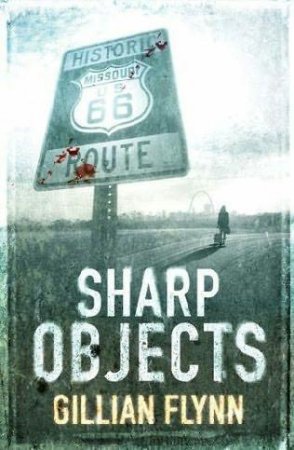 Sharp Objects
Sharp Objects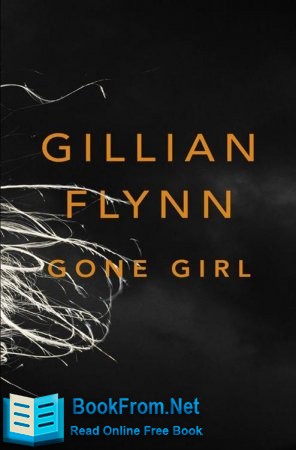 Gone Girl
Gone Girl Dark Places
Dark Places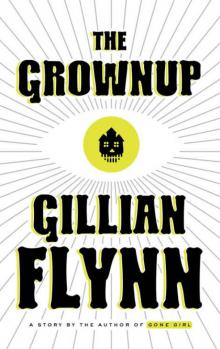 The Grownup
The Grownup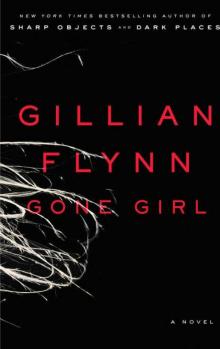 Gone Girl: A Novel
Gone Girl: A Novel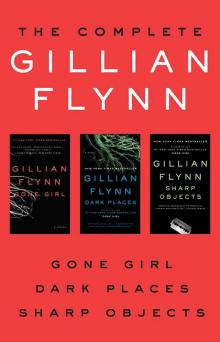 The Complete Gillian Flynn
The Complete Gillian Flynn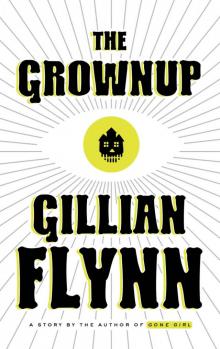 The Grownup: A Story by the Author of Gone Girl (Kindle Single)
The Grownup: A Story by the Author of Gone Girl (Kindle Single)